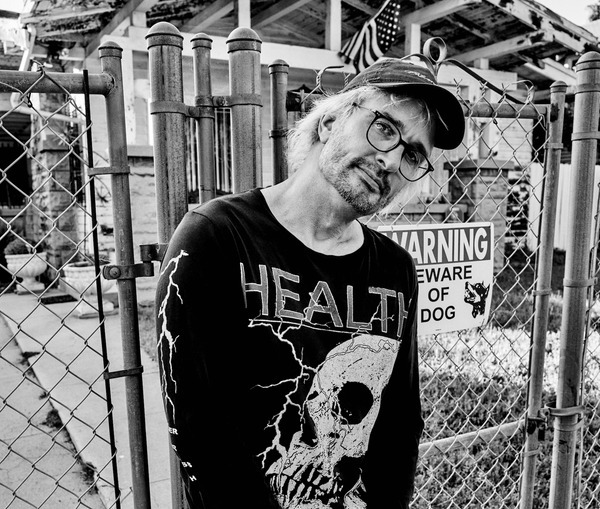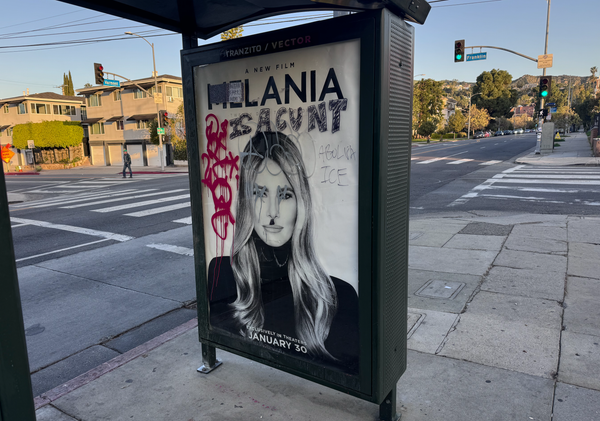Going beyond the doorstep convo: Part II
The second piece about how the JW's operate
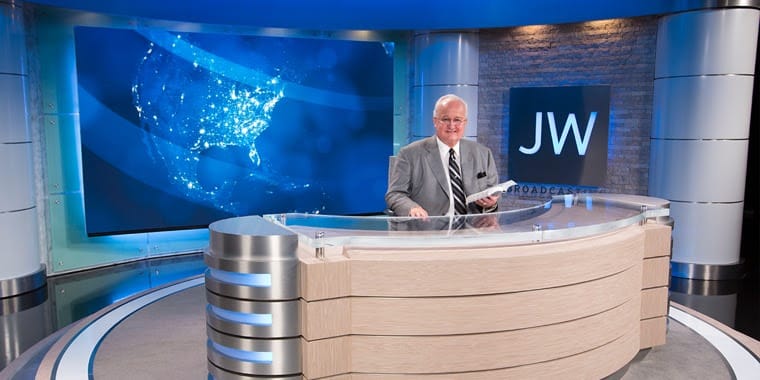
Hi,
This is part II in a series — so please make sure you caught part I first!
David
Part II: The Media
After sowing suspicion toward all contrary opinions, Splane narrows his sights toward the media. I presume there’s been some unflattering news articles.
He has us imagine a Witness at someone’s doorstep being told that Jehovah’s Witnesses “let [their] children die,” and tells us how to respond:
“Well, you ask the householder, “Do you know any Jehovah’s Witnesses personally?” “No.” “Then where did you get the idea that we let our children die and don’t accept medical treatment?” The householder says: “I have it on good authority. I read it in the newspaper.” Well, if it’s in the newspaper, it must be true, right? Not necessarily.”
This is a strawman argument, not even an anecdote. Splane comes across as smarter but only because he has created someone so naive. Notice that there is no example of what to say to someone who is actually well-informed, perhaps someone specifically criticising their refusal of blood transfusions. Indeed, while this imagined householder learned about Witnesses from the media, it could have been from anywhere. He continues:
Reporters have a deadline to meet, and a reporter may not have the time or the inclination to check the facts. Or the reporter may have written a balanced article, but then the editor changes it. Maybe the editor doesn’t like Jehovah’s Witnesses, or he’s been misinformed about us. Now, it’s bad enough if people in the world believe everything they read in the newspaper but, brothers, let’s not be among them. Let’s not be naive; let’s consider things carefully.
For reporters, their job is to write objective articles. Sometimes this doesn’t happen, but this is not common. It’s not just articles in Splane’s sights, but all media:
“[S]ometimes there’s a TV program about Jehovah’s Witnesses. Now, a few of these programs are balanced and fair [but] most are not. And when they’re not, you’ll often find that the producers started out with a negative view of Jehovah’s Witnesses and then they looked for information to support their prejudice. So whom did they turn to? Apostates and the clergy.
… At the very last minute, they may ask the brothers for a comment just to give an appearance of fairness, but the program wasn’t designed to be fair. It was designed to be unfair. It was slanted against Jehovah’s Witnesses.”
On this last point, Jehovah’s Witnesses are known to turn down requests from the media. So worried they are of their image, any news interview has to go through numerous bureaucratic hoops before, invariably, the interview request is denied.
Here, though, Splane is the victim of his own accusations, generalising that all non-Witnesses are gullible and believe everything they read. In describing programs produced by people who “started out with a negative view”, Splane successfully describes confirmation bias, where one searches for information that supports what they already believe.
The irony is palpable. The first half of this talk instructs witnesses to not engage with anything that challenges their beliefs. Rather than equip them with critical thinking skills, Splane pulls the plug entirely, casting all negative content as “poison”, stopping members from having to interpret anything themselves at all.

There are also no examples of what media can or cannot be trusted, or how one can discern between fact and fiction. The Governing Body prefers obedient followers who refrain from thinking for themselves at the cost of hearing those who may have genuine concerns, including those whose lives have been irrevocably damaged by something like child abuse.
You might be curious as to why the Witnesses are even complaining about the media, especially for a religion on the fringes. But the timing is not coincidental.
A few weeks after Splane’s talk, VICE released a documentary on Jehovah’s Witnesses, exposing the covering up of various corruption and abuse.
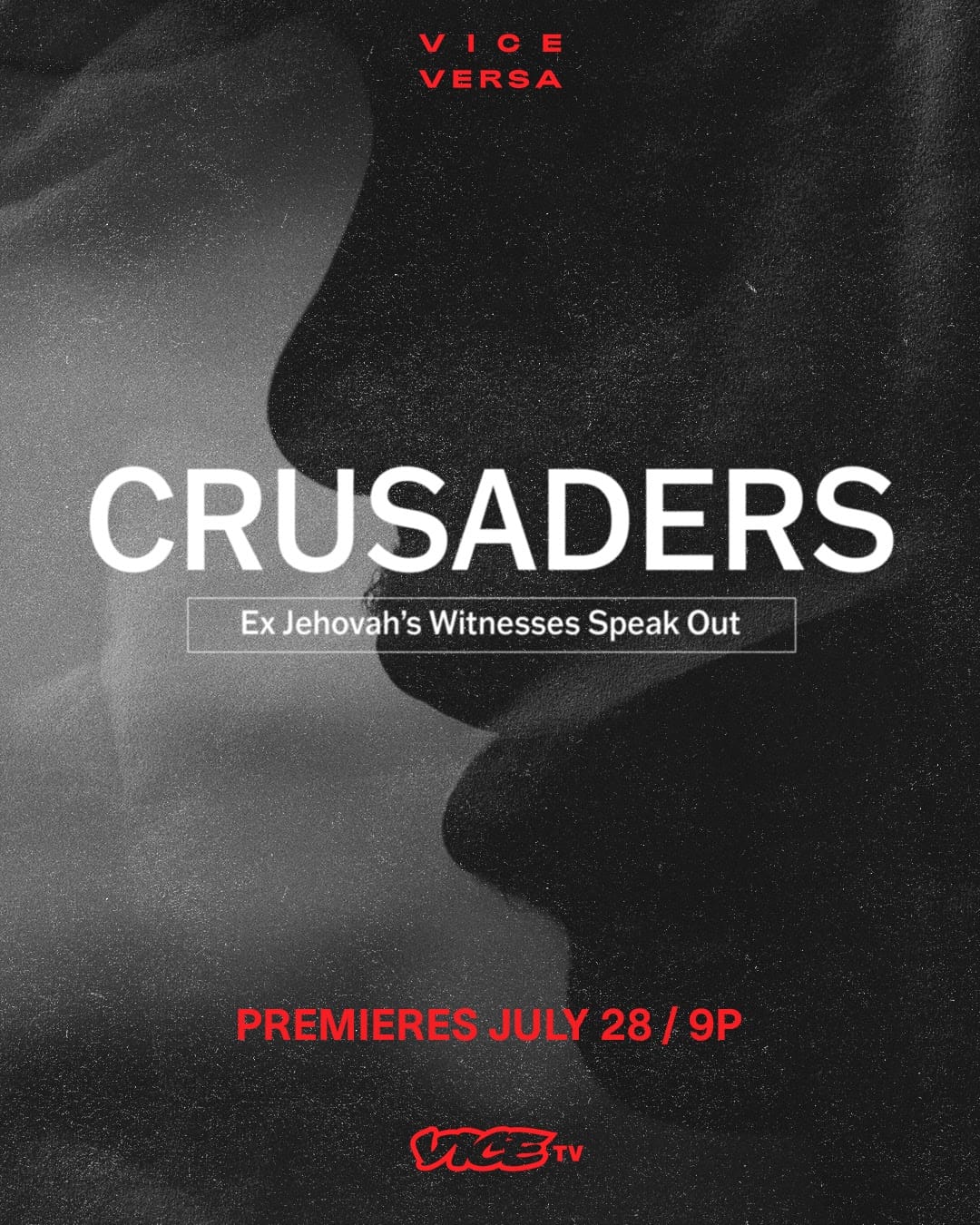
Three years earlier, Leah Remini aired a special episode on the Jehovah’s Witnesses for her television show on Scientology. For Remini, the way the organisations treat ex-members was too similar to ignore.
In September, Sky News UK aired a 10-minute segment on the religion’s failure to adequately protect children from abuse.
In Australia, the Witnesses’ reluctance to join a national redress scheme for abuse victims was well-publicised. They refused to acknowledge harm or apologise. As of September 2021, the Witnesses have agreed to join the scheme, but did so only after Prime Minister Scott Morrison threatened to remove their tax-exempt charity status. Consequently, many lawyers are still concerned for the well-being of children in the organisation.
For a religion viewed as merely door-knockers, this amount of media attention toward something serious—the mishandling of child sex abuse—is significant.
But to the church’s leadership, it’s not even insignificant: it’s all lies. By blaming all negative media on apostasy, Splane gives Witnesses reason to discredit any criticism, both from within and outside the organisation.
Part III: Government
But the Governing Body’s fear doesn’t end with apostates and media, and this is where Splane’s focus–out of court settlements–gets suspiciously specific.
We are introduced to Haman, an evil character known for persecuting Jews. Splane says there are “modern-day Hamans”.
Who are they? You guessed it: government officials.
“Now again, it’s bad enough, brothers, when government officials are taken in by false reports, so don’t you be taken in. Have you ever heard the expression “trial by media”? It works like this: Someone is charged with a crime, and the case is widely publicized in the media, and the media presents the case in such a way that everyone who hears about it thinks the man is guilty.”
By sowing suspicion of all criticism and comment—by current members, former members, and the media—his audience is now groomed to disbelieve anything critical.
In the context of usual religious sermons, it’s also very bizarre. Splane’s talk is the last of a whole day of talks. Usually they are often uplifting and scriptural, but Splane’s is more of a restrained rant, and he’s not finished:
“Does it [Job 12:11] mean that if we learn that apostates are going to be featured on a TV program, we should watch it to see if what they say is true? No. It basically means to consider the source of the words. If they are the words of apostates, why would we believe them? Now, think of it this way: You have a bottle on your shelf that’s marked “poison.” Do you need to open it up and take a swig to see if it really is poison? Believe what the label says.”
The implication of Splane’s instruction is clear: Jehovah’s Witnesses are not being dignified with the freedom to decide which information is true and which is false.
Strangely, this was a freedom given to Job: he is known for being tested by God. His loyalty through temptation and tribulation made him the ideal character for being—in the words of the convention’s theme—“powerful by faith”.
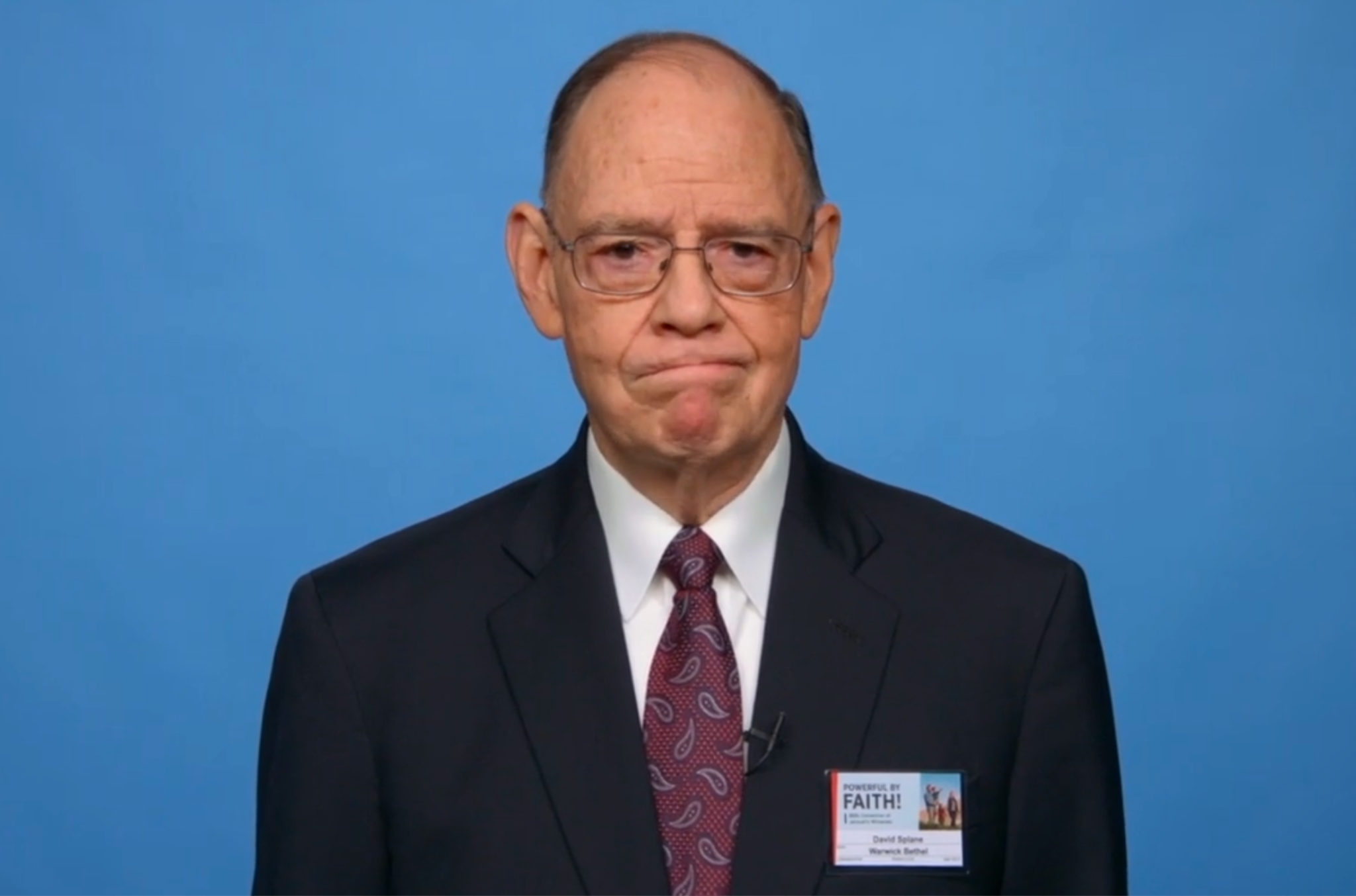
Splane’s beef with government officials now gets more specific, and he explains his issue with more hypothetical examples.
“So suppose a report indicates that someone has been charged with a crime or that he’s being investigated. All right, you have two words: charged and investigated. It doesn’t mean he’s guilty. Or suppose that someone is convicted and put in jail. Well, that would apply to our young brothers in Korea, wouldn’t it? They were convicted and jailed. And what was their crime? They refused to kill someone. Did they do anything wrong?”
Using obedient Witnesses in Korea as an example for all reports where a Witness has been charged with a crime is intentional. By using rhetorical questions, the audience is coerced into thinking that, because the Korean brothers were innocent, then so too are other Witnesses accused of crimes.
Splane goes further, though, to insinuate that being “guilty by man” is different from being guilty by “the sight of God”:
“Or if someone is found guilty by man, as Jesus was, it doesn’t mean that he’s guilty in the sight of God. So, brothers, we really have to think about these things. We may read that a person or an organization was sued and then settled out of court. Does settling out of court mean that they were guilty? Not necessarily.”
This is true, but it would be equally wrong to argue that verdicts are always right; this is the major reason why many countries do not have capital punishment—to avoid the death of an innocent person.
But there is more going on here, as Splane implies that settlements out of court do not mean the accused is guilty. What is the effect of this other than to rouse suspicion into verdicts in court cases?
By settling out of court, the accused party avoids rigorous cross-examination in the courtroom. The Governing Body is aware of this, as in their own literature they accuse the Catholic Church of settling child abuse cases out of court because it does connote guilt. Below is an excerpt from their 1993 Awake! magazine, when the Catholic Church’s abuse was being uncovered and the Witnesses were seemingly innocent:
“Interestingly, though, the aforementioned U.S. attorney, who represents 150 victims of pedophile priests in 23 states, says that he has never yet had a client who was eager to go to court. Each one first tried to seek justice “within the pastoral context of the church.” NCR concludes: “Survivors go to the courts, it appears, not as a first resort, but as a last resort.”
It’s more projection. Jehovah’s Witnesses are regularly settling child sex abuse cases out of court, often in the millions–money that likely comes from the donations of church members oblivious to such crimes.
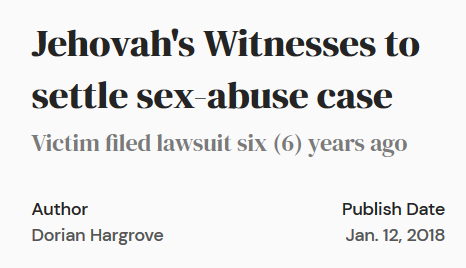
The Jehovah’s Witnesses don’t want to be questioned. Rather than cross-examined, they settle. But justice should not be paying a fine for child sexual abuse.
Where do we go from here?
If Splane began with his comments on court settlements, many Witnesses would be wondering what on earth has been going on. But by pushing government officials and the media under the umbrella of ‘apostasy’, Splane’s talk initially appears to make sense.
With no public apology for their institutional failings, you would be forgiven for thinking that Jehovah’s Witnesses hate apostates more than pedophiles.
Apostates threaten the beliefs of members, while pedophiles are only a nuisance to those unable to leave the organisation on their own — children.


